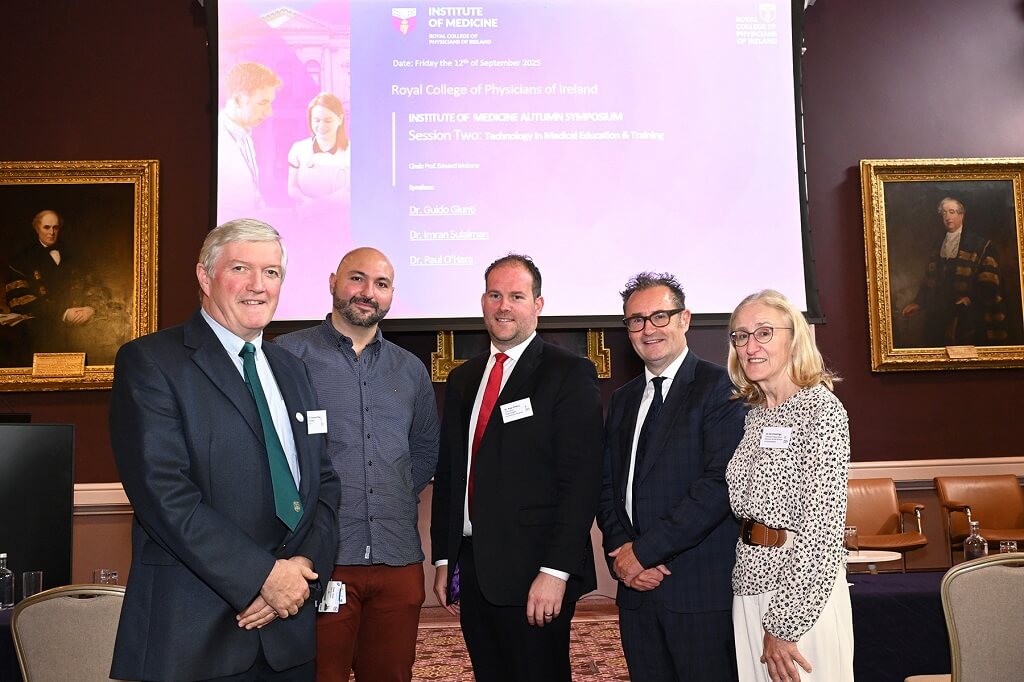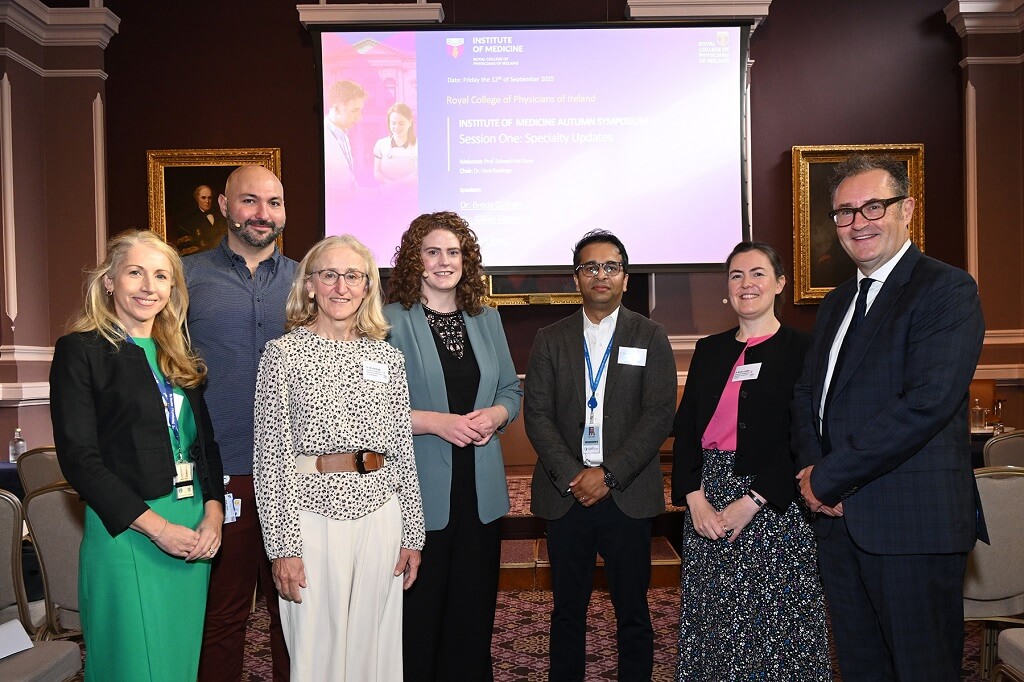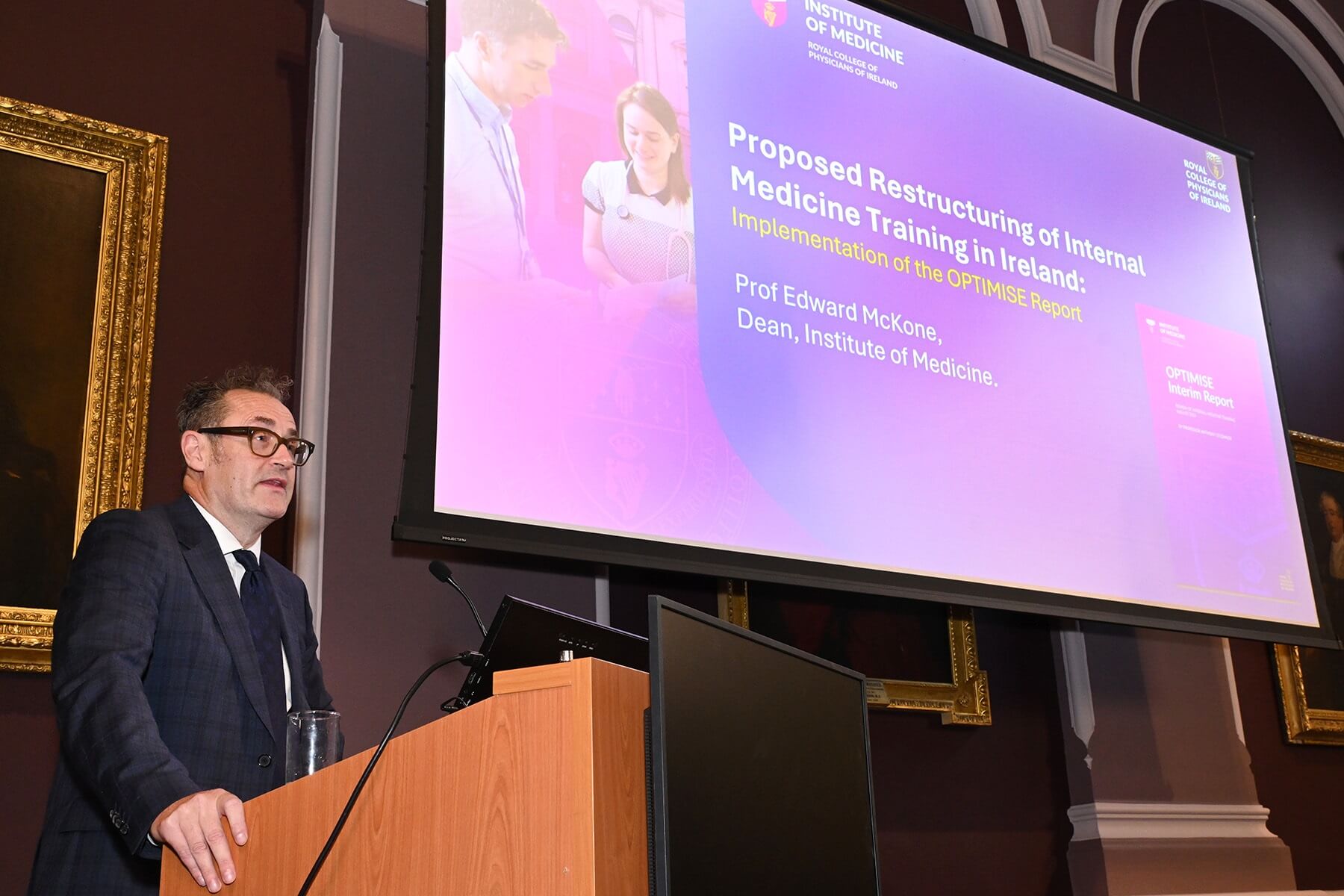Shaping the Future of Medical Education: Insights from the Institute of Medicine’s Autumn Symposium
The future of medical education took centre stage at the Institute of Medicine’s Autumn Symposium, held on 12 September 2025 at No. 6 Kildare Street. Drawing strong attendance both in person and online, the event combined case-based specialty updates with forward-looking discussions on medical training. The symposium also explored the impact of emerging technologies in education, such as artificial intelligence, simulation, and point-of-care ultrasound (POCUS).
A central theme of the day was how these innovations are shaping the training of the next generation of physicians. Professor Edward McKone, Dean of the Institute of Medicine, opened the session by remarking, “New technologies, like artificial intelligence, are what excite us, but how we implement them often keeps doctors awake at night.” Dr Guido Giunti, Chief Data Officer at St James’ Hospital, echoed this sentiment during his presentation on artificial intelligence.
Dr Giunti explained that artificial intelligence is already present and impacting key points along the patient journey, from patient monitoring and rehabilitation support to assisting physicians with charting. He emphasised the importance for physicians to “distinguish hope from hype in the AI world”. He also reminded the audience to consider how we can become partners with new technology and to approach it with the same critical mindset used for evaluating new pharmaceutical products.

The next technology under the spotlight was simulation, with Professor Imran Sulaiman, Consultant Respiratory Physician at Beaumont Hospital, demonstrating how it can enhance learning and preparedness. Professor Sulaiman outlined the numerous benefits simulation offers to both doctors and patients, including low risk, improved knowledge retention, experiential learning and the facilitation of multidisciplinary team collaboration. He noted that simulation has the potential to transform the traditional medical adage ‘see one, do one, teach one’ to ‘see one, do one hundred, teach one.’
Dr Paul O’Hara, Consultant Nephrologist at Portiuncula Hospital, emphasised the power of POCUS in bringing diagnostic skills back to the bedside. He shared real-life cases where POCUS directly benefited patient care and highlighted the institute’s commitment to Point of Care Ultrasound Training through its world-class POCUS programme, tailored specifically for Institute of Medicine trainers.
The sharing of knowledge through practical insights across the Institute’s specialties ranging from cardiology and infectious diseases to nephrology and rheumatology reflected the breadth of expertise within the Institute of Medicine, offering delegates valuable updates for everyday clinical practice.

Speaking about the symposium, Professor McKone said: "The Autumn Symposium is about more than sharing clinical updates. It is about looking ahead and ensuring our training programmes and educational approaches keep pace with the changing needs of modern medicine. By embracing innovation and staying grounded in patient-centred care, we can prepare the next generation of doctors to thrive.”
In the final session, Professor McKone provided an update on the Institute’s planned restructuring of internal medicine training in Ireland. He was joined by Dr Emer Kelly, Professor Garry Courtney, and Dr Ian Counihan for a panel discussion on how best to equip trainees for the challenges of modern healthcare. Prof. McKone outlined the plan, explained how it came to be, its current status and next steps. The session sparked an insightful discussion on the new plans. Prof McKone will provide a further update on the plan at the upcoming RCPI Annual Conference in October.

Throughout the day, participants engaged in interactive discussions, Q&A sessions, and networking opportunities, making the symposium not only a platform for knowledge-sharing but also a space for strengthening professional connections across specialties.
In closing, Professor McKone thanked all those who contributed to what was a stimulating and thought-provoking programme.
Image gallery